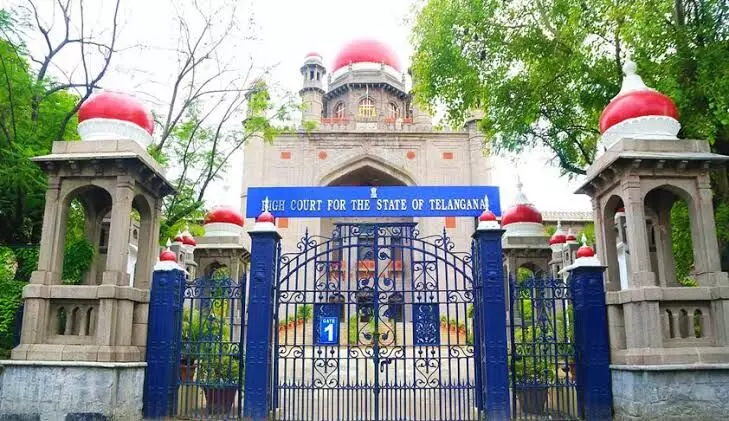Making Telugu compulsory in schools: Telangana HC denies relief to petitioners challenging decision
Telangana HC denies relief to petitioners challenging state's decision on Telugu language in schools
By Sistla Dakshina Murthy
Making Telugu compulsory in schools: Telangana HC denies relief to petitioners challenging decision
Hyderabad: Telangana High Court has refused to grant interim relief in a Public Interest Litigation (PIL) challenging the state government’s decision to make Telugu a compulsory second language in all non-state board schools, including CBSE, ICSE, IB, and Cambridge schools.
The matter was heard by a division bench comprising Chief Justice Aparesh Kumar Singh and Justice GM Mohiuddin. The bench posted the matter for further hearing and directed it to be tagged with a related writ petition.
PIL opposes sudden policy without notice
The PIL was filed by Pramila Pathak, a teacher, who argued that the state government’s directive based on a memo issued on December 7, 2024, was implemented abruptly and without adequate notice.
She claimed that students from diverse linguistic and cultural backgrounds, particularly in urban areas like Hyderabad, were being compelled to study Telugu from Classes II to X, thereby infringing upon their fundamental rights.
Demographic imbalance highlighted
Referring to the 2011 Census, the petitioner pointed out that only 43.35% of Hyderabad’s population identifies Telugu as their mother tongue. She argued that the new language policy failed to account for this diversity and unfairly imposed a regional language on a largely cosmopolitan student population.
The petitioner also drew the court’s attention to the 2018 Telangana Act, which had mandated a phased introduction of Telugu in Grades I and VI. She contended that the current move ignored this statutory guideline and sought its enforcement without transitional support.
Govt says exemptions in place, seeks two weeks
In response, the government pleader informed the bench that exemptions had already been granted to students of Classes IX and X and requested two weeks to present a detailed, phase-wise plan for implementation across non-state board schools.
Accepting the plea, the High Court granted the requested time and directed that the PIL be clubbed with a pending writ petition on the same issue. The matter is expected to be taken up again after the state submits its action plan.